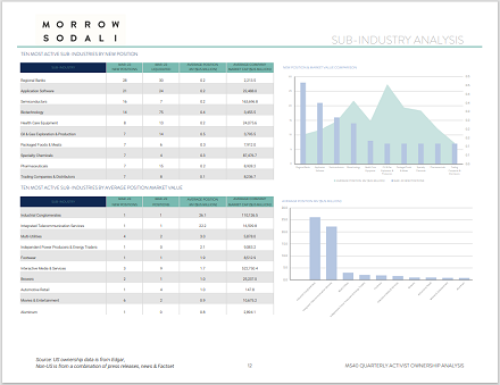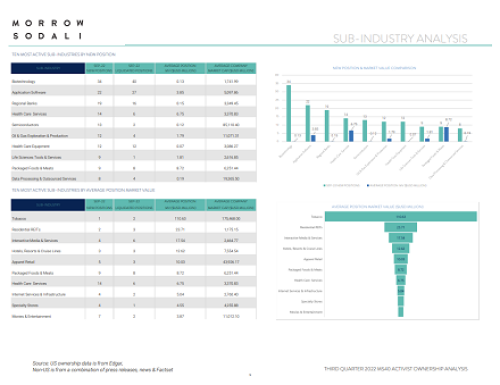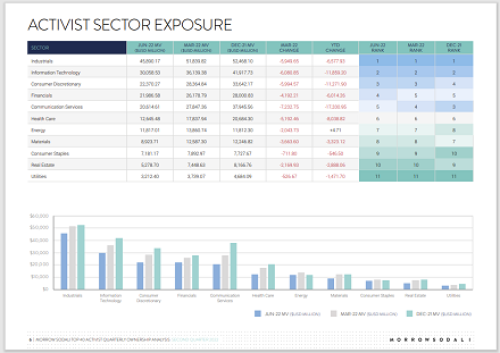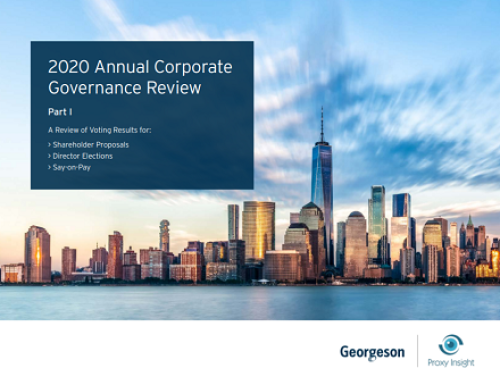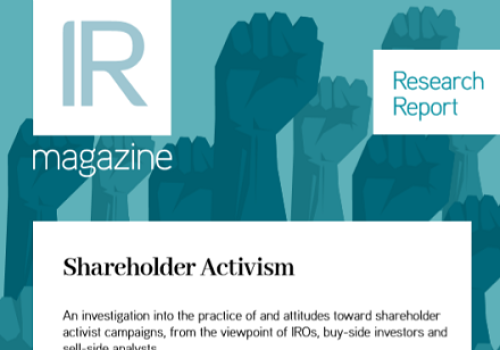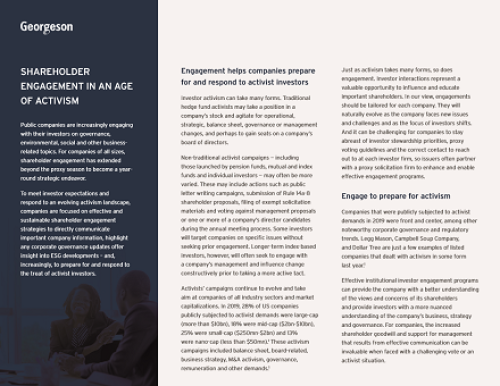As index funds look to activists as a way of altering a company’s strategy, IROs and corporate secretaries need to form a united front, says Dan Romito, Nasdaq’s global head of investor analytics.
The partnership between index funds and activists can work for both parties: index funds can align with an investor that helps them alter the long-term strategy of a target company or dethrone unruly management; and the activist can gain greater influence by working with large index funds that control large percentages of a company’s stock.
This collaboration is changing the way companies should prepare an activist defense plan, Romito explains. ‘If index investors can’t divest, it means that they have to fix management,’ he tells IR Magazine. ‘What that means is preemptively looking at your capital deployment plan. That is the proxy for understanding the degree of vulnerability [to an activist] for your strategy.
‘By assessing whether or not – objectively - you have a capital deployment plan that could be argued is short-term in nature, you are assessing and screening in the way that an activist from both the index side and conventional activist side would.’
Romito says this is driving index funds and activists alike to use ESG issues as a lens through which to assess companies’ long-term strategies.
‘Traditionally, when you’re combatting activism, you can say we have a total return of 80 percent so we’re fine. But there are two prongs to it: the numerator and the denominator,’ he explains. ‘The numerator is your inherent return and you have to look at it as consistency and sustainability. The denominator is your cost of capital.
‘Is there a premium or variable that we [the investor] have to tack on to the cost of capital because of the inherent risk or the excess risk you’re taking on? If you’re tacking up that cost of capital, by definition you’re decreasing shareholder wealth that’s being generated.’
Romito says it is important for IR teams to partner and communicate regularly with their corporate secretaries, because the latter may be talking to the governance teams at large index funds without the IR team being aware of it.
‘The [portfolio manager (PM)] may love everything about the story, but if the governance team is uncomfortable they’re not telling the PM, they’re telling the corporate secretary,’ Romito says. ‘So you have to have these lines of communication opening up. We’re seeing that convergence taking place.’
Click here to view the full video interview with Nasdaq’s Dan Romito. Subscribe to the playlist to receive notifications when a new video from the NIRI national conference is uploaded.


